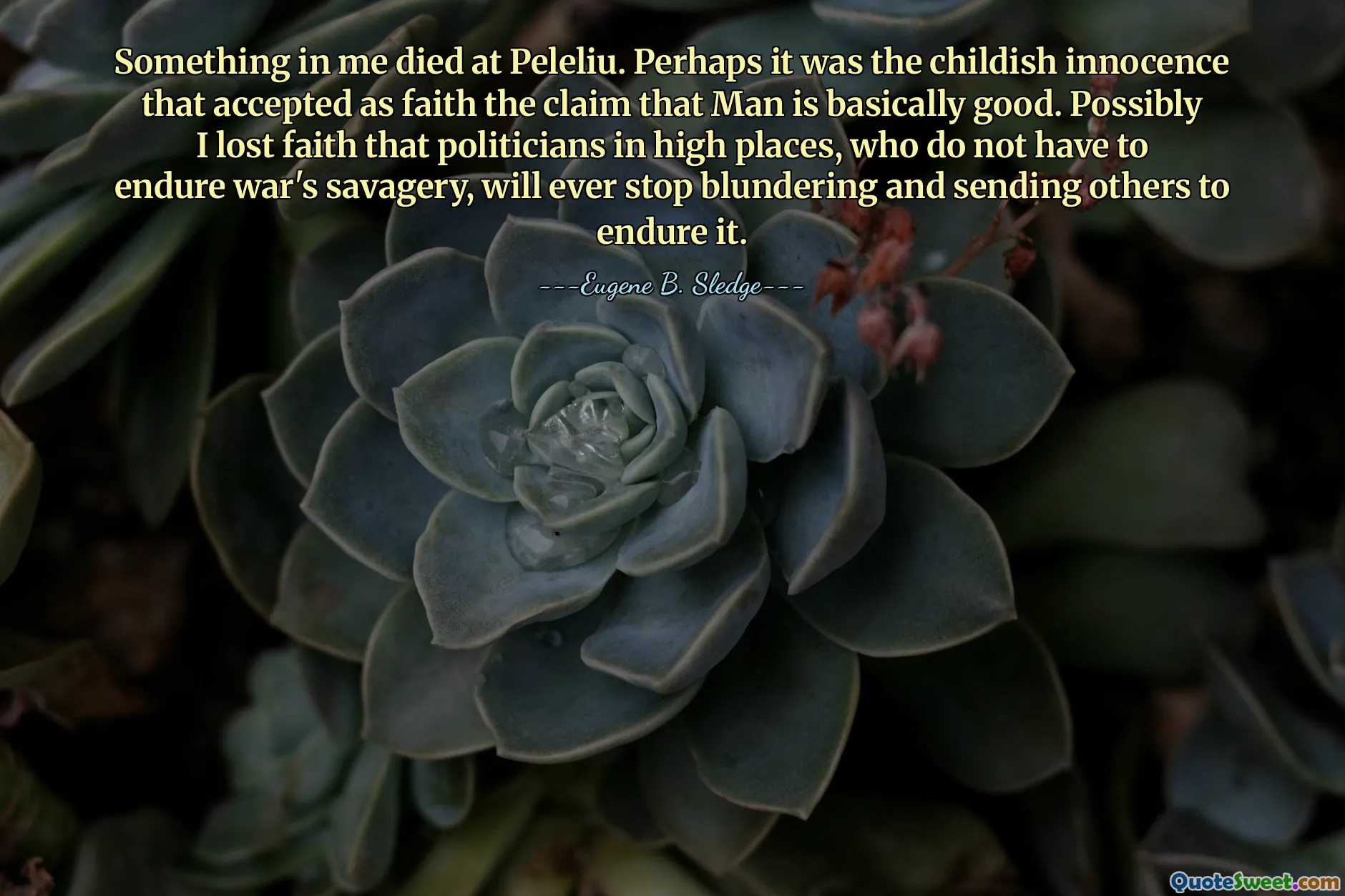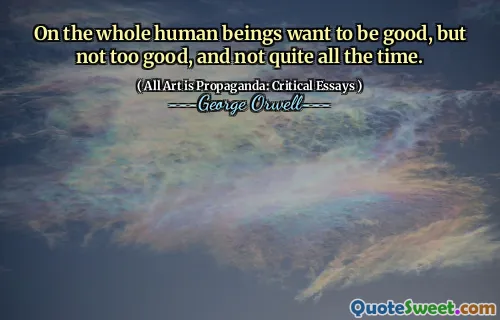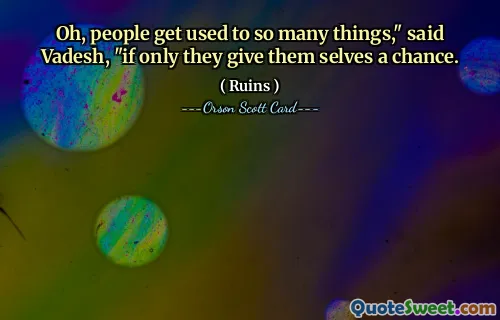
Something in me died at Peleliu. Perhaps it was the childish innocence that accepted as faith the claim that Man is basically good. Possibly I lost faith that politicians in high places, who do not have to endure war's savagery, will ever stop blundering and sending others to endure it.
This quote poignantly captures the profound transformation that war inflicts upon the human spirit. The reference to Peleliu—a famously brutal battle in World War II—serves as more than just a historical backdrop; it symbolizes the shattering of naive beliefs about human nature and governance. The phrase "something in me died" conveys deep internal loss, a symbolic death of innocence triggered by the harsh realities witnessed. This innocence, described as "childish," initially fostered an optimistic trust that people are inherently good, a faith common in those unexposed to brutal conflict.
The author's reflection reveals a painful awakening to human cruelty and the realization that evil and error are entwined with human nature and societal structures. The mention of politicians who "do not have to endure war's savagery" highlights the disconnect between those making decisions and those who suffer the consequences, emphasizing a critique of political leadership and the enduring cycle of war. It’s a powerful statement on the cost of war—not just in lives lost but in the erosion of idealism and faith in humanity and governance.
What resonates deeply is the emotional complexity behind the quote. It's not merely a lament but a candid admission of the psychological toll war exacts on individuals. This reflection urges readers to contemplate the dissonance between ideals held in youth and harsh experiences encountered later. Ultimately, it prompts profound questions about how societies might break free from such tragic cycles and rebuild faith amid conflict and governance failures.








